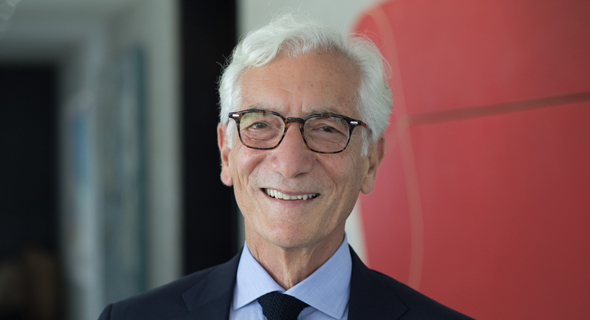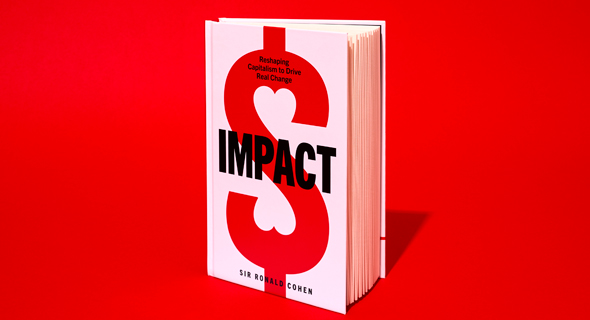Sir Ronald Cohen: “COVID-19 is shaking up our habits and beliefs, opening the door to significant change”
The father of impact investment and British venture capital speaks about the role of social entrepreneurs in reshaping the post-coronavirus world, and explores Israel’s potential to become the Impact Nation
In the midst of an unprecedented global crisis, and while many parts of the world are undergoing a second wave of COVID-19, venture capitalist-turned-impact investor Sir Ronald Cohen is actively pushing for impact investment and entrepreneurship – not just as a means to recover from the economic crisis, but also in order to reach the world’s Sustainable Development Goals by 2030, and to preserve our planet.

Sir Ronnie, as he prefers to be called, is Chair of the Global Steering Group for Impact Investment and The Portland Trust. He is the cofounder of Social Finance UK, USA, and Israel, and the Chair of Bridges Fund Management and Big Society Capital. Considered the father of British venture capital, the cofounder and leader of Apax Partners is also the driving force behind the impact investment movement, having pioneered multiple initiatives globally.
Earlier this year, he published an important book about the Impact Revolution, entitled IMPACT: Reshaping Capitalism to Drive Real Change; most recently, he joined Start-Up Nation Central’s CEO Prof. Eugene Kandel at the Milken Institute Global Conference for a panel discussion with leading figures in the impact arena, titled “The Impact Revolution: From Sustainable Development Goals to Solutions.”

We sat down for an exclusive interview with Sir Ronnie to speak about the latest trends in impact investing and its importance.
Question: The UN has set 17 sustainable development goals (SDGs) – including no poverty, zero hunger, clean water, clean energy and sustainable cities – to achieve by 2030. Can we reshape our planet within 10 years to attain these goals?
Answer: The temperature keeps rising and we can see the consequences in fires, floods, and coral reef deaths around the world. Time is running out, but we’re only going to reverse the direction if we get companies to change their behavior. If we do so, then we will see change come quite quickly.
Q: We need a whopping $30 trillion to achieve all SDGs by 2030. How are we going to finance that?
A: This is why we must get large corporations engaged in the effort. They, too, must work toward meeting social and environmental challenges; they can no longer just make money without worrying about the damage they cause. We can already see in the Harvard Business School dataset, correlations between companies that pollute more and lower market valuations. The higher the pollution or the environmental damage, the lower the market rating they’re getting. Impact data has already become price-sensitive information.
I think this is the only way we can achieve the SDGs. Audited impact-weighted accounts published by companies will enable us to link every impact line to specific SDGs. Impact transparency is crucially important if we want investors who are our allies to influence companies to deliver real improvement in our society and planet.
Q: Has COVID-19 slowed this positive process?
A: I think it’s actually accelerating it, because COVID-19 is reshaping our habits and beliefs, and leading us to question capitalism, democracy and everything else: the way we work, the way we interact, the way we live – so it opens the door to significant change.
Corona is also creating very difficult challenges for governments. They are going to emerge from the economic crisis with heavy debt, which they’ve taken on in helping people and businesses to make it through COVID. They will be constrained on spending money on social services in the way they will need to do because of high levels of unemployment, homelessness and poverty. So, governments need to mandate impact transparency so that investors can make intelligent decisions that are based on risk, return and impact. This is the way to change the behavior of companies so that they help governments achieve their social and environmental objectives.
To read the full interview, click here.



